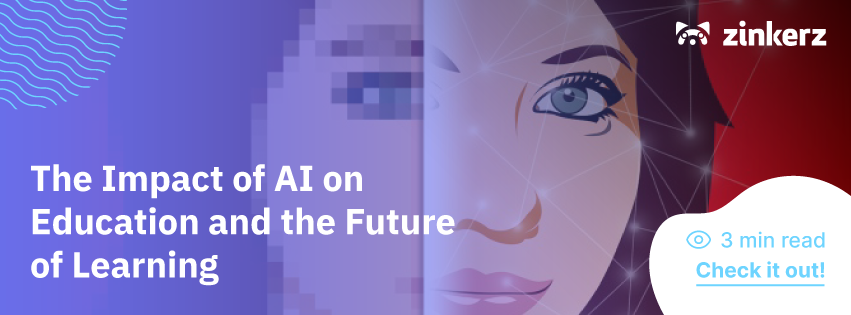The dramatic advances in AI and synthetic reality are taking the world by storm. Recent articles highlight the progressive nature of AI. The web is being taken over by articles entirely written by AI, advertisements, essays… you name it, and the newest AI can do it.
Only a few weeks ago, this was not the case. We all felt safe and assured that technology could not replace us. We knew that there was no replacement for the human touch. But the alarmingly fast advances made over the past month have people questioning this. Will we be replaced? How quickly will this happen? And is there still a need for “the human touch”?
What is the human touch?
Sure, a computer can show you how to solve a math problem or even write a paper for you (yes, it can write a unique, personalized, original essay for you with no trace of plagiarism!), but can it replace the need for people? A recent video has people questioning reality more than ever before. So what is the human touch? Can machines learn and become human? All sources indicate they can and will replicate human thought. They will analyze, solve, and explain a problem. People may continue to fight the new advances, but all trends show that this will become the new (virtual) reality for all of us.
And we are now questioning reality. Is it always what we can see, know, and hold? Or is it something more significant? Well, we will leave those deep philosophical thoughts to each individual. But one thing is for sure; our world is changing quickly and expanding beyond the “real world” that we know.
Haters gonna hate
Social media is flooding with examples of how AI is replacing the need for humans. But there are mixed views in all comments. Some commenters assure others that the articles “written” by these AI bots do not sound unique or correct. They assure others and themselves that humans can always do better than machines. But they cannot always do better. We all know this because there is always room for human error. We have watched as computers have taken over assembly lines; advertisements take our feeds over that, somehow, are precisely what we were thinking about looking for. So why is it hard to believe that this is happening? Many people cannot imagine technology going any further than it already has. Some fear the implications of this. Some will always believe that the world is flat.
The truth is, this will eventually impact everything we know.
How will this affect education?
The world of education will be significantly impacted. It already is. The new adaptive SAT being rolled out is a perfect example of technology replacing the “old school” way of doing things. The problem is we do not know the full extent of this. We have watched curriculums shift to online platforms, but this is not even close to the end of this progression.
Your child can type in a question and get an answer explained to them for almost any problem. While the experts at Zinkerz found many issues in some math problems answered by the newest AI, these were quickly fixed. And we understood (although we enjoyed our moment of boasting that “WE BEAT AI!”). After all, we cannot expect everything to be perfect immediately. The fantastic (and somewhat alarming) piece of this is how it can learn from mistakes and fix them. It can explain problems to students in multiple steps.
Seeking help through the new AI is still a work in progress. The explanations are correct, but educational experts argue they are not helpful for many students. After all, most students would shy away from reading a paragraph about the steps to solve a math problem. Right now, the presentation of the solutions will only benefit some students. However, changes are indeed on the horizon.
Students can look up almost any problem and find the answer. They will type a topic into a box and receive an essay to hand in. They will have a problem explained to them in a way that meets their learning style. But this has yet to arrive.
Scary? YES!
Why?
How will we learn?
If we no longer need to stretch our brains, fill them with knowledge, challenge ourselves, and “think outside the box,” what will happen to us? Will our brains become a massive pile of mush, and our IQs drop to adolescent levels?
What will happen to the future of education? Will teachers become obsolete? We do not believe humans will ever be obsolete in education, but things must change. We must find a balance as we move forward. How can humans and AI help each other? How can we create learning environments and opportunities for all students using teamwork? We are all still figuring this out, but companies like Zinkerz are staying on top. We have always built our foundation on a happy marriage between personalization and automatization, and this will not stop.
Embrace change
Right now, having a real person teaching you is still a vital piece of learning. While the balance may change, we can be comforted that this will not replace teachers (at least not yet).
In schools, there will always be a need to “read the room” and know the students. To understand what is going on in their lives that may affect their performance that day. To have a deeper understanding of what their facial cues are telling us. What motivates students, what drives them to succeed, and what they need to push themselves to learn are all things we know. We add the personal touch. We know how to break a problem down for each student.
The future of AI will probably prove that it can also do these things, so humans and AI will need to work together to foster learning opportunities and expand our world as we know it… into the virtual world and beyond.



